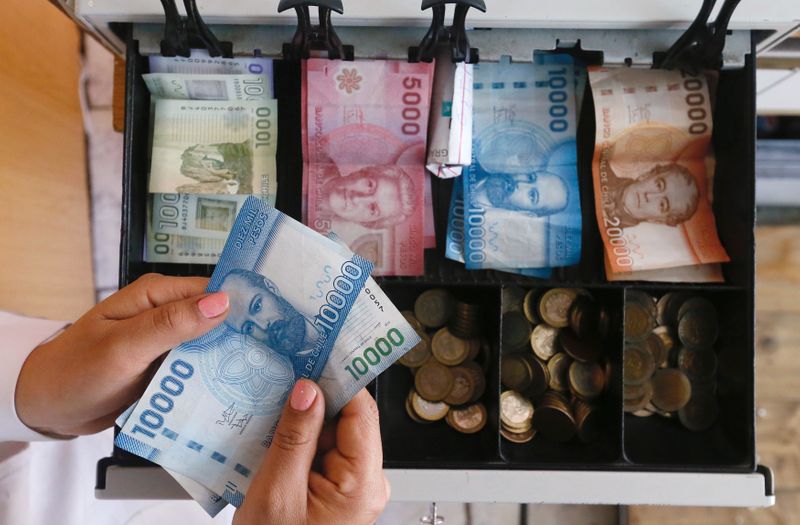By Karin Strohecker
LONDON (Reuters) -Chile's peso and stocks surged on Monday after hard-right former congressman Jose Antonio Kast topped the first-round election, with the focus now shifting to the composition of congress.
Chile is heading for a runoff with Kast competing with leftist lawmaker and former protest leader Gabriel Boric on Dec. 19. A strong performance by moderate centre right candidates bodes well for Kast.
Chile's peso jumped as much as 3.7% against the dollar to trade at 797.90 - its best day in almost two years - before giving up some gains to trade at around 809.00.
"Initial results are very bullish for Chilean assets as the market will have to remove the risk premia priced in last week," said Alvin Tan at RBC.
"We have to wait and see if the right-wing coalition is able to increase or at least maintain the current representation in order to adjust our medium/long term negative views in CLP."
The main Santiago stock exchange index jumped over 7%, led by retailers Falabella and Cencosud, along with regional carrier LATAM Airlines (OTC:LTMAQ).
"Fear over the potential for a political shift to the left has been one factor behind the weak performance of Chile assets this year, with equities down 10% year-to-date," said Hasnain Malik, head of equity research at Tellimer in a note to clients. "Chile is the cheapest hard commodity exporter in emerging markets."
The election has split voters between those seeking a shake-up of its free-market model and those demanding a harder line against crime and immigration, after two years of sometimes- violent protests demanding improvements to living standards.
Chileans also voted to fill 155 lower house seats and 27 of the 50 upper house seats. Hard-right and conservative lawmakers looked set to finish with 23 seats in the Senate, and center-left and hard-left lawmakers were on course for 22 seats, with the rest going to independents.
"Against the backdrop of the Constitution Convention, the power distribution in the Congress matters more than in prior cycles," said Diego Pereira at JPMorgan (NYSE:JPM).
Notwithstanding Monday's gains, Chile's peso has weakened more than 11% since the start of the year, making it one of the region's worst-performing currencies in 2021 despite a more than 20% increase in copper prices.

The premium demanded by investors to hold Chile's hard-currency sovereign bonds over U.S. Treasuries narrowed by 7 basis points to 149 bps, though they are still the worst performer in Latin America, returning -16.5% compared to a -8% return in JPMorgan's regional sub-index.
Luc D'hooge, head of emerging markets bonds at Vontobel Asset Management, said a divided Congress would likely limit any radical legislative changes.